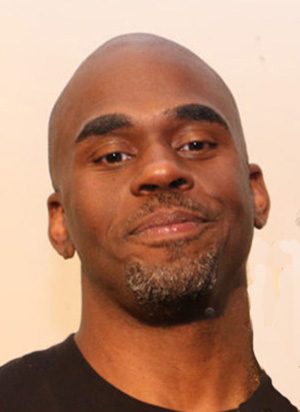By CHRIS FIELDS

I was listening to someone speak recently about the tongue and its life-controlling, life-altering power. This message is popular in our Christian community, as the Bible says a lot about bridling the tongue and watching what we speak and how we can speak things into existence.
If taken out of context (and most of the scriptures related to “power in the tongue” are), one would believe that our tongue has the power to make or break us, and sadly a lot of Christians have been rendered powerless by practicing this often misinterpreted or under-interpreted text. We watch what we say, but we still think derogatory thoughts.
Like when my wife calls me at an inopportune time, my thoughts might think, “Now she knows I’m busy. Why is she interrupting me? I don’t have time for this.” But when I pick up the phone, my mouth says, “Hello my good thang.” (“Good thang” is my nickname for her based on the Bible verse, “He who finds a wife finds a good thing,” Proverbs 18:22.)
We guard what comes out of our mouths to an extent, but we allow our thoughts to run wild, and eventually it’s our thoughts that catch up with us, moving us to action, whether the action was verbalized or not. We don’t have to confess something with our mouths to be moved to action, and we can’t induce outcomes without action. Our thoughts don’t require our mouths, but our mouths would be rendered powerless without our thoughts. It is impossible to speak without thinking, contrary to popular belief.
Allow me to share a few examples.
Example 1
You can’t speak weight loss into existence. You can’t speak the discipline it takes to invoke weight loss into existence, either. You must formulate a plan and execute the plan, which requires thought, actions and discipline — and discipline requires consistent thought and action based on the formulated plan. You can, however, lose weight without uttering a single word or weight-loss affirmation. Same goes for building muscle or training for an athletic event.
Example 2
You can’t speak a healthy diet into existence. You can’t speak spinach and apples into your mouth. You can’t speak to your body and tell it to process nutrients it hasn’t received. You can subscribe to all the healthy eating blogs you want and read all the ingredients out loud for the healthiest meals they post, and it still will not give you the nutrients you need for your body to sustain a healthy weight, great bloodwork, and the right amount of energy for daily living.
Example 3
You can’t actually walk up to a mountain and tell it to move, and it really move. Even though Jesus told the disciples to have faith the size of a mustard seed and the mountain would move, He knew their faith would be determined by their capacity, and their capacity would grow like a seed based on their level of obedience. Then, if that seed is positioned in the right place, its path of growth could cause the mountain to literally move.
Once we see we can achieve something, our faith grows, creating room for us to achieve more based on our newly established God-given capacity. We must test our capacity and expand our capabilities by consistently acting in our growing ability.
Once we lose 10 pounds, we believe we can lose weight, and we attempt to lose more. Once we see we can bench 225 pounds, we believe we can do it, and we go for more. The exception to this is, some of us probably never say, “Hey! I see I can eat a bowl of broccoli. Let me eat one more!” and then turn around and eat more. In fact, we probably wait another three weeks to eat more broccoli.
Moral to the story is, it’s time for us to be more action-oriented and less talkative, because only actions can create results in our health and in our service to Christ. Happy holidays, all!

Chris Fields is the founder and executive director of H.E.A.L. Mississippi and a graduate in kinesiology with advance studies in nutrition. He serves as a clinical exercise physiologist/CPT and is credentialed in Exercise Is Medicine through American College of Sports Medicine.